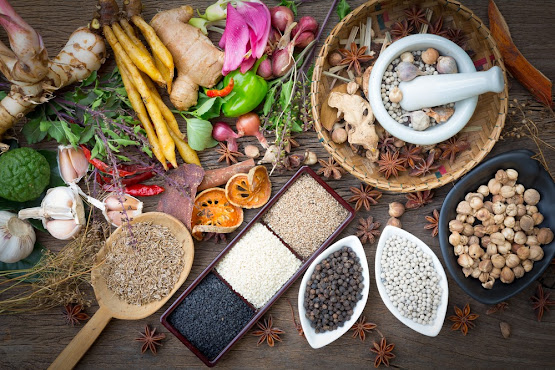Tailoring Your Diet to Your Dosha: A Guide to Ayurvedic Nutrition
Are you tired of one-size-fits-all diets that promise the world but leave you feeling dissatisfied? It's time to embrace a personalized approach to nutrition that has been practiced for centuries - Ayurvedic dieting! In this comprehensive guide, we will delve into the fascinating world of Ayurveda and explore how tailoring your diet to your unique dosha can unlock a new level of vitality and well-being. Get ready to discover the secrets behind this ancient wisdom and revolutionize your relationship with food as we embark on a transformative journey together. Let's dive in!
Introduction to Ayurveda and
Doshas
One of the key principles of Ayurveda is
the concept of doshas. According to this belief, everything in the universe is
made up of five elements – space (or ether), air, fire, water, and earth. These
elements combine to form three doshas or energies - Vata (space and air), Pitta
(fire and water), and Kapha (water and earth). Each person has a unique
combination of these doshas that determines their physical characteristics,
personality traits, and susceptibility to certain health issues.
Understanding your dominant dosha can help
you make informed decisions about your diet and lifestyle choices. By tailoring
your diet to your specific dosha, you can achieve optimal health by balancing
any imbalances in your body's natural state
Understanding Your Dosha and
its Characteristics
Ayurveda, the ancient Indian system of
medicine and healing, is based on the concept of three doshas – Vata, Pitta,
and Kapha. These doshas are considered to be the fundamental energies that
govern our physical, mental, and emotional well-being. According to Ayurvedic
principles, each person has a unique combination of these doshas which
determines their individual mind-body constitution or Prakriti.
Understanding your dosha is crucial in
Ayurvedic nutrition as it helps you tailor your diet and lifestyle choices
according to your specific needs. It allows you to make informed decisions
about what foods are best for you and which ones should be avoided to maintain
balance and prevent illness.
So, let's dive deeper into each
dosha and its characteristics:
1. Vata Dosha
Vata is associated with movement,
creativity, and change. People with a predominant Vata dosha tend to have a
slender body frame, dry skin, cold hands and feet, irregular digestion, and a
restless mind. They also have a tendency towards anxiety, worry, and fear when
out of balance.
To balance Vata dosha through
diet:
- Choose warm foods that are nourishing and
grounding such as grains like rice or oats.
- Eat cooked rather than raw vegetables.
- Use warming spices like ginger or
cinnamon in cooking.
- Avoid cold drinks or food straight from
the fridge.
- Incorporate healthy fats like ghee or
avocado into meals.
2. Pitta Dosha
Pitta is associated with fire and
transformation. People with a predominant Pitta dosha tend to have a medium
build, oily skin, strong digestion, and a sharp intellect. When out of balance,
they may experience anger, irritability, and inflammation.
To balance Pitta dosha through
diet:
- Choose cooling foods like cucumbers,
cilantro, and coconut.
- Eat meals at regular times to avoid
getting too hungry or skipping meals.
- Avoid spicy or overly salty foods.
- Incorporate bitter tastes like leafy
greens into meals.
- Drink plenty of water throughout the day.
3. Kapha Dosha
Kapha is associated with stability and
structure. People with a predominant Kapha dosha tend to have a larger body
frame, smooth and moist skin, slow digestion, and a calm nature. When out of
balance, they may experience weight gain, sluggishness, and attachment.
To balance Kapha dosha through
diet:
- Choose light and warm foods that are easy
to digest like cooked vegetables and soups.
- Use pungent spices like black pepper or
cayenne in cooking.
- Limit heavy or oily foods like dairy
products or fried foods.
- Incorporate bitter tastes like leafy
greens into
Embracing the Ayurvedic diet and eating
according to your dosha can be a transformative journey toward balance and
vitality. Remember that these guidelines offer a general overview, and
consulting with an Ayurvedic practitioner for personalized advice is highly
beneficial. By aligning your diet with the wisdom of Ayurveda, you can nurture
your body, mind, and spirit, fostering a harmonious and holistic approach to
health.


.jpg)

Comments
Post a Comment